
Medical Oncology
The University of Alberta Medical Oncology Residency Program goal is to produce competent Medical Oncologists who will provide excellent, evidence-based care to patients across a breadth of practice possibilities and to provide this training in a rich and supportive learning environment.
EDUCATION FOCUSED
PRIMARY FOCUS IS ON RESIDENT EDUCATION OVER SERVICE
UNIQUE CENTRE
ONLY ONE OF TWO CANADIAN CENTRES LIKE IT IN CANADA—THE CROSS CANCER INSTITUTE IS A FREE STANDING CENTRE PROVIDING COMPREHENSIVE CANCER CARE TO PATIENTS
LONGITUDINAL CLINIC
A CONSISTENT HIGHLIGHT IN THE PROGRAM IS THE RESIDENT LONGITUDINAL CLINIC
Interview/CaRMS Specific Information
TBD 2025
All interviews will be conducted over a virtual platform, using Zoom. Each applicant will meet with the Program Director and members of the Residency Training CaRMS Committee, and current residents.
Successful applicants to the University of Alberta Medical Oncology Residency Program will demonstrate skills and attributes such as: strong academic achievements, excellent clinical skills, good work ethic, impressive interpersonal skills, working well in a team environment, and broad life experiences. While research experience is not mandatory, it is favoured in the selection process. We are looking for adult learners who will be successful in our program.
Each year, in conjunction with the other Western Canadian Medical Oncology residency programs, we host a Q&A session prior to the MSM CaRMS interview period. This is typically in August and conducted over Zoom and offered to interested applicants.
Please refer to University of Alberta PGME policies.
Contact Us
Cross Cancer Institute
11560 University Avenue
Edmonton, Alberta
Canada T6G 1Z2
Dr. Sanraj K. Basi
Program Director
Medical Oncology Residency Training Program
medonc@ualberta.ca
780-432-8513
Dr. Michael Kolinsky
Associate Program Director
Medical Oncology Residency Training Program
medonc@ualberta.ca
780-432-8762
Ms. Mary Burns
Program Administrator
Medical Oncology Residency Training Program
medonc@ualberta.ca
780-432-8513
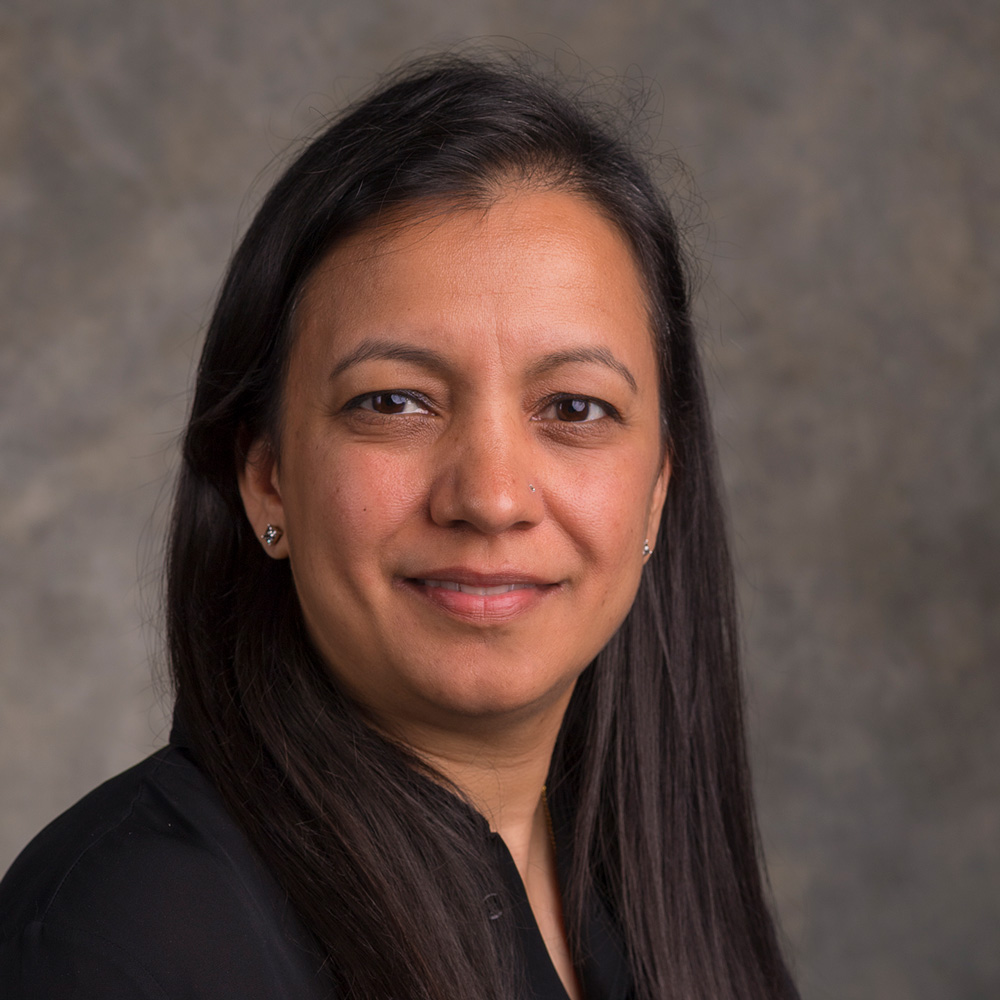
Dr. Sanraj K. Basi
Program Director
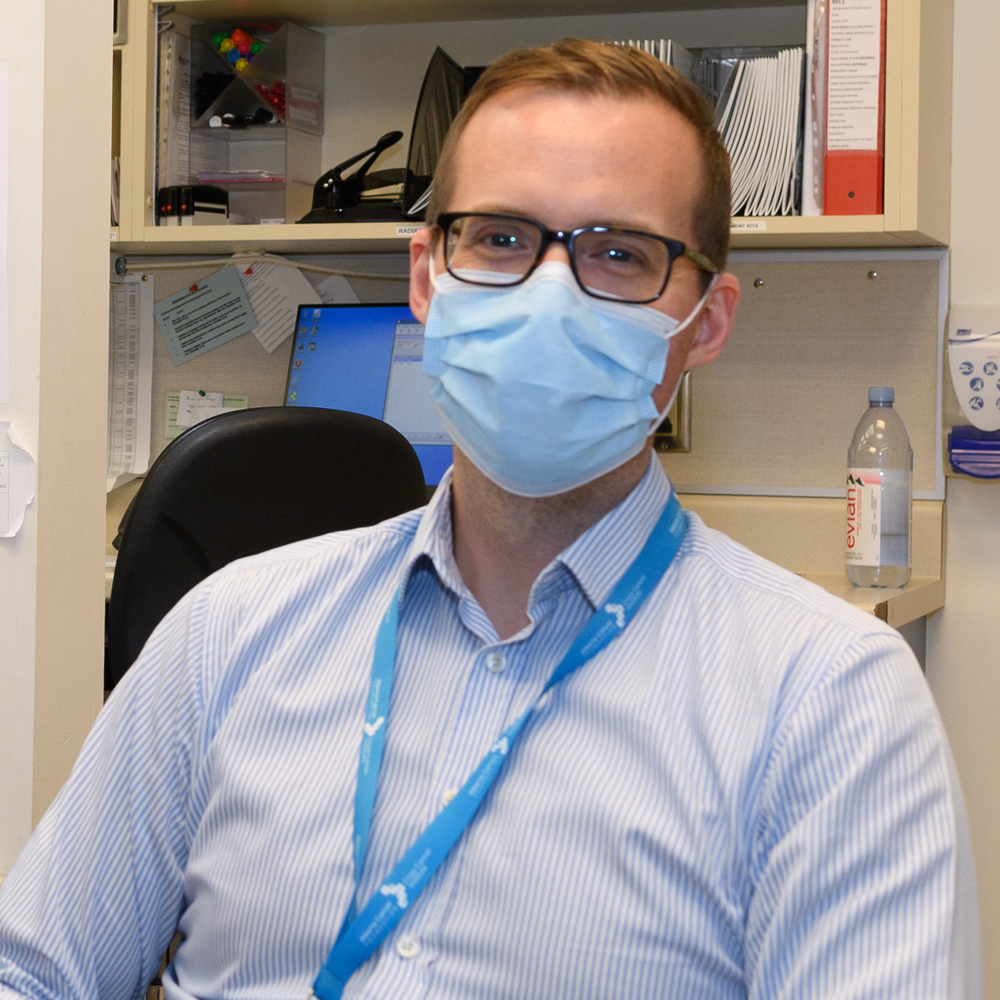
Dr. Michael Kolinsky
Associate Program Director
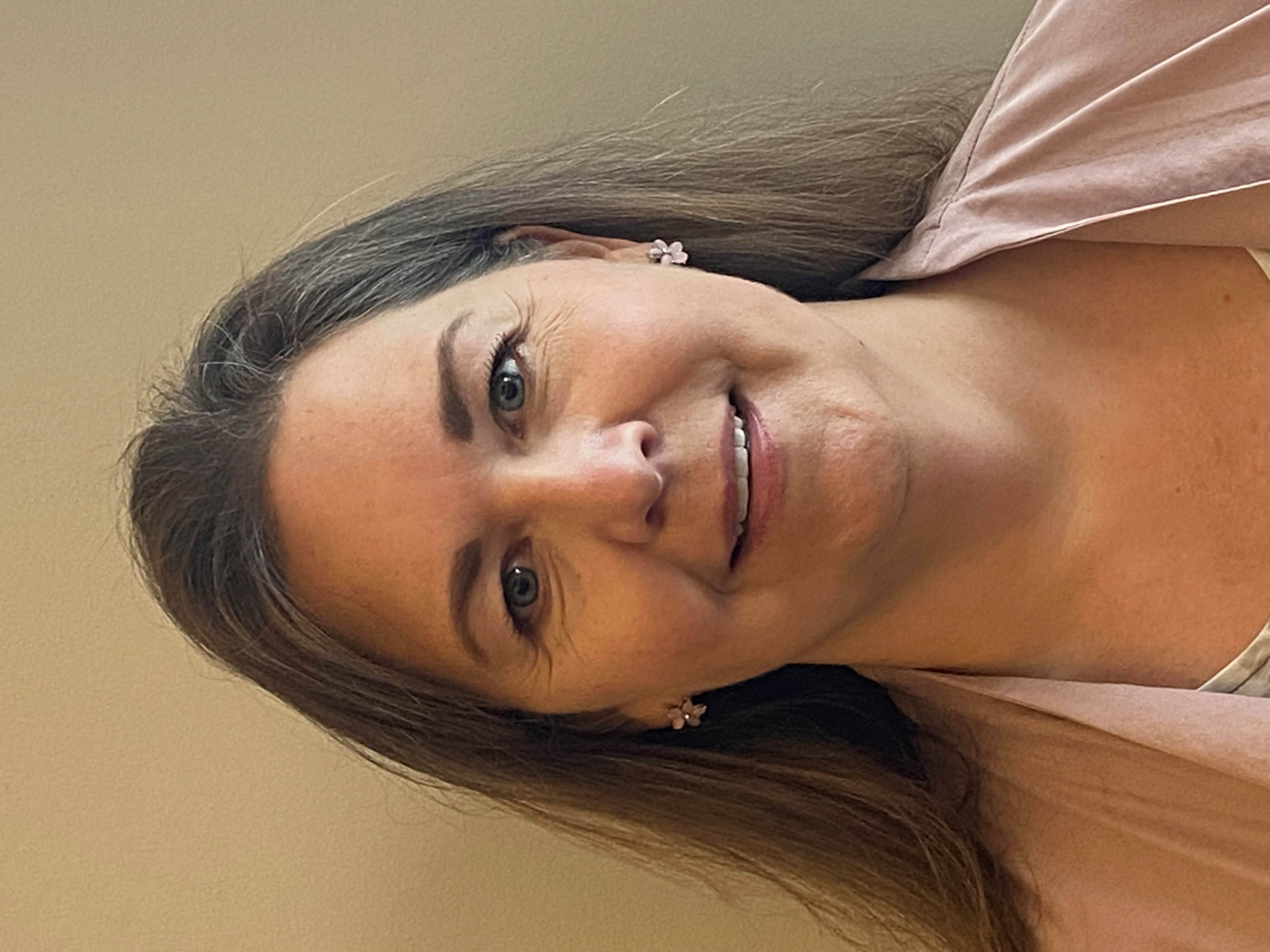
Ms. Mary Burns
Program Administrator
Welcome to Our Program
Welcome to our Medical Oncology webpage!
Medical Oncology encompasses one of the fastest growing knowledge bases within subspecialty medicine, making it highly dynamic. Increasing incidence of cancer attests to the continually increasing demand for highly trained, specialist oncologists. At the same time, the rapidly expanding knowledge base of clinical and basic science research in the field of oncology translates into an ever-increasing demand for oncology practitioners with more highly specialized knowledge and expertise.
One of the things I love about our discipline is that there is a tremendous scope within the subspecialty to tailor one's individual career to reflect one’s personal developing interests. Our Training Program offers resources at the Cross Cancer Institute to help our residents achieve their career goals, whether it is in academia pursuing clinical trials for example, or in community practice providing broad cancer care.
In our program, we believe the primary purpose of the resident's presence and participation in clinics is to advance the resident's education; service provision is secondary to this, contrasting with more traditional models where these priorities are reversed. At the same time, the resident's clinical experience represents the competence and confidence to ultimately care for patients with cancer independently and we support this model in the resident longitudinal clinic experience.
Something that I think speaks volumes, is that if you look at our department, more than half of the teaching faculty are alumni of the program. This tells you that those of us who trained here, wanted to stay here, and we know what it is like to be a resident in this program! We recognize that a physician's ability to care for patients is greatly enhanced by maintaining a psychosocial balance to the pursuit of his/her career. With this understanding, the faculty respects the need for residents to protect their personal time saved for family, friends and other personally gratifying interests.
As Program Director, I feel we have one of the best programs in Canada! We were early adopters of Competence by Design (CBD), we had several exemplary indicators on our recent RCPSC accreditation including our Residency Program Committee (RPC) and my role as PD, we provide a breadth of oncology experiences, and we prioritize our residents.
I invite you to read through our webpage and reach out to us if you want to learn more!
Thank you.
Dr. Sanraj K. Basi
Program Director
Our Program
Residents in the University of Alberta Medical Oncology Program are based at the Cross Cancer Institute. As one of the largest comprehensive cancer centers in Canada, it affords the opportunity to obtain a wealth of clinical oncology experience.
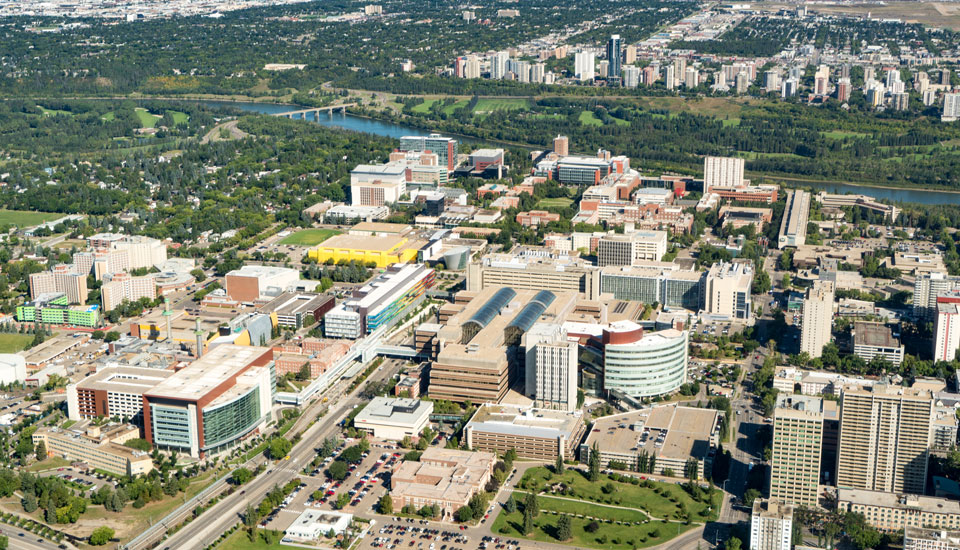
In addition, the Cross Cancer Institute is one of the finest cancer clinical trials research facilities in the country and will expose residents to the latest in oncologic therapy as well as gain experience in the management of patients on clinical trials.
Residents will learn the fundamental principles of the basic and clinical science of oncology including the epidemiology, natural history, diagnosis, staging, treatment, monitoring of treatment response, and management of toxicities. Dedicated instruction is provided on basic pharmacology of systemic therapies.
Residents will be taught the basic principles of research and study design and are encouraged to identify a research project which can be completed during their training.
Residents will have a longitudinal clinic opportunity to provide them a gradual learning responsibility of delivering cancer care to patients .
At the University of Alberta, we are able to provide residents with clinical experiences in both academic and community-based oncology. A one-month community oncology rotation in Grande Prairie has been incorporated into our curriculum.
Residents can develop their leadership skills by serving as lead resident. In this capacity, they are involved as a peer advisor to their colleagues and in the coordination of resident rounds, journal clubs and teaching sessions.
Program Highlights

A program that prioritizes resident education over service

Resident longitudinal clinic has been repeatedly cited as a strength of our program

Freestanding comprehensive cancer centre serving an impressive catchment area

Supportive teaching faculty who are experienced in CBD

Prepare residents for a career in both academic oncology or community oncology

Productive clinical trials unit and teaching faculty
Residency at a Glance
Residents are guided through a two year educational program that meets all the Royal College of Physicians and Surgeons of Canada requirements for subspecialty certification in medical oncology.
Based at the Cross Cancer Institute, a full service, free standing cancer Institute with the following departments:
- Medical Oncology
- Oncologic Imaging
- Radiation Oncology
- Experimental Oncology
- Gynecological Oncology
- Palliative Care
- Pathology & Laboratory Oncology
- Pediatric Oncology (based at the U of A Hospital)
- Surgical Oncology
- Transition to Discipline - 1 block
This stage is a general orientation to the Cancer Centre and focusing on a general patient assessment. It is designed with several didactic sessions, a variety of outpatient clinics, and a week in the inpatient unit.
- Foundation of Discipline - 4 blocks
Typically this stage consists of outpatient clinics in the major tumor sites undertaken in a longitudinal fashion.
- Core of Discipline - 18 blocks
This is the main stage of training where residents rotate through the tumor sites and also get exposure to radiation oncology, palliative care, community oncology and have the opportunity to pursue 4 electives. It is at the beginning of this stage that we also have the resident choose their longitudinal clinic and carry this through the remainder of their training. The longitudinal clinic is one of the highlights of our program.
- Transition to practice - 3 blocks
The final stage in training where residents will have a clinic in the major tumor sites, including their own longitudinal clinic and “run” the clinic with the staff physician as “back-up” support.
-
L.M.C.C.
-
Three years of training in internal medicine approved by the Royal College of Physicians of Canada.
A two-year program: July 1 (year 1) until June 30 (year 2).
In-house, first call during evenings and weekends is not a requirement of the training program. However, should a medical oncology resident choose to do this call, the CCI recognizes this work as a professional service and remunerates residents at competitive rates.
The program does have a requirement for Junior-staff home-call, which is 10 weeks over the 2 year period of training. This experience allows residents to learn the consultancy role in a graduated increase-in-responsibility fashion over the latter 3 stages of CBD training. In Junior-staff call, residents are paired with a staff-medical oncologist of their choice.
Teaching Hospitals
We are a fully accredited program that follows the guidelines set out by the Royal College of Physicians and Surgeons of Canada.
Primary Training Site:
Alternate Training Sites:
- For community oncology experience:
- For palliative care experience:
- Grey Nuns Hospital (tertiary palliative care unit)
- Cross Cancer Institute Palliative care consult service
Program Supports
- Regular scheduled meetings with Program Director and Associate Program Director every 6 months to review progress in the program and also address wellness, safety, research experiences and career counselling.
- Teaching faculty in the department have an “open door policy” when it comes to residents. We make ourselves available.
- The resident office is adjacent to staff offices.
- We have a full time program assistant, Ms. Mary Burns.
- Supportive Residency Training Program Committee.
- Encourage mentorship through the resident longitudinal clinic where a resident chooses the staff physician they would like to work with for the latter 18 months of their training.
Frequently Asked Questions
L.M.C.C.
Three years of training in internal medicine approved by the Royal College of Physicians and Surgeons of Canada.
A two-year program: July 1 (year 1) until June 30 (year 2).
Please refer to the Royal College of Physicians and Surgeons of Canada for specific information on the required Training Experiences and a description of those per CBD stage for our program.
Residents will be paid according to the PARA (Professional Association of Residents of Alberta) agreement concerning remuneration of residents commensurate with their number of years of postgraduate training.
In-house, first call during evenings and weekends is not a requirement of the training program. However, should a medical oncology resident choose to do this call, the CCI recognizes this work as a professional service and remunerates residents at competitive rates /span>
The program does have a requirement for Junior-staff home-call, which is 10 weeks over the 2 year period of training. This experience allows residents to learn the consultancy role in a graduated increase-in-responsibility fashion over the latter 3 stages of CBD training. In Junior-staff call, residents are paired with a staff-medical oncologist of their choice.
For a summary of Competence by Design (CBD) please refer to the following link:
Competence by Design (royalcollege.ca)
Resident Testimonials |
We asked our residents what they like about Edmonton, their highlights of the program, and one piece of advice for applicants about the interview process. Here is what a few of them had to say. |
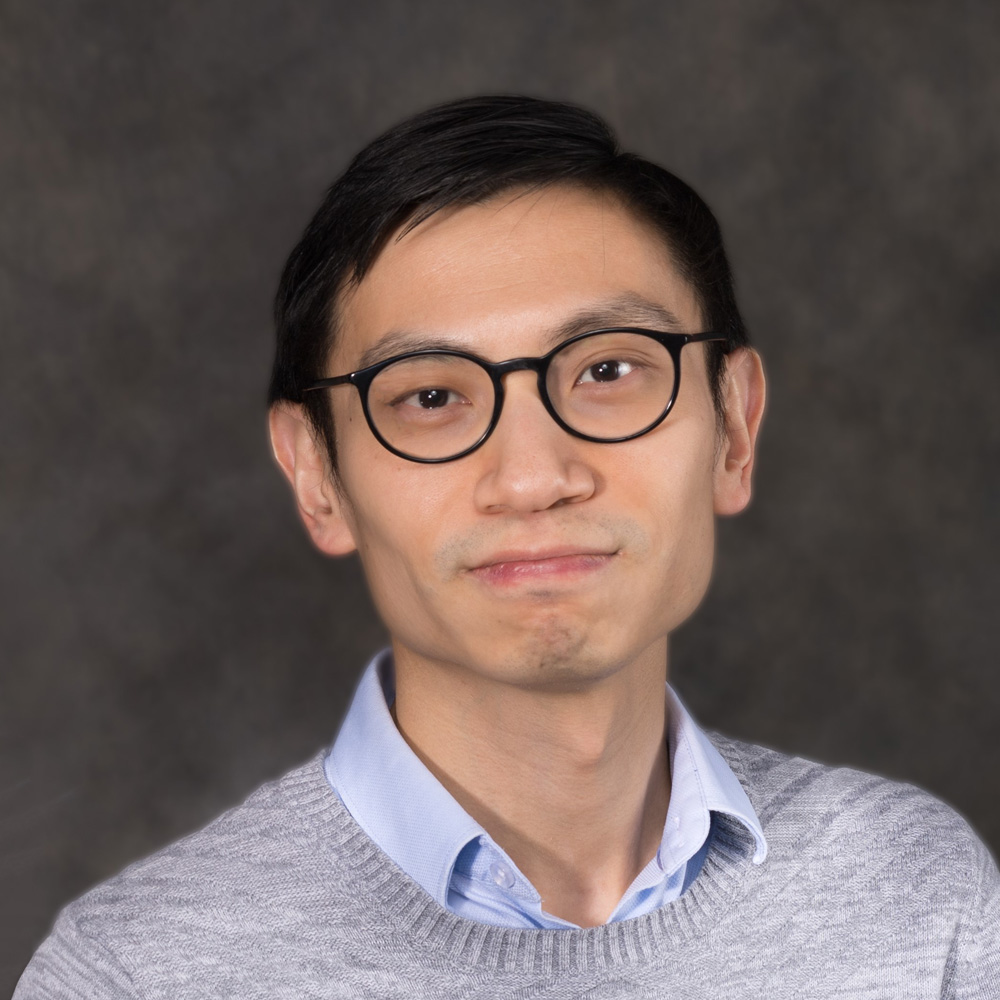 |
What do you like about Edmonton: Edmonton has a lot of indoor/outdoor activities and events to offer regardless of your interests and hobbies. There are also many good restaurants. In addition, the Banff and Jasper National Parks are scenic treasures of not only the province of Alberta but also Canada. What are the highlights of the program for you: Several highlights that make the Medical Oncology program at the University of Alberta an excellent program include the tremendous support of our program director and preceptors, the structure of the training which provides both breadth and depth of training in many areas in oncology, the opportunities to lead a longitudinal clinic with full support by mentor, and the opportunities to conduct clinical research with a great database and data analyst and biostats support. What is one piece of advice that you want to share with applicants about the interview process: Be yourself and showcase your strengths with confidence. David Tsui 2018-2020 |
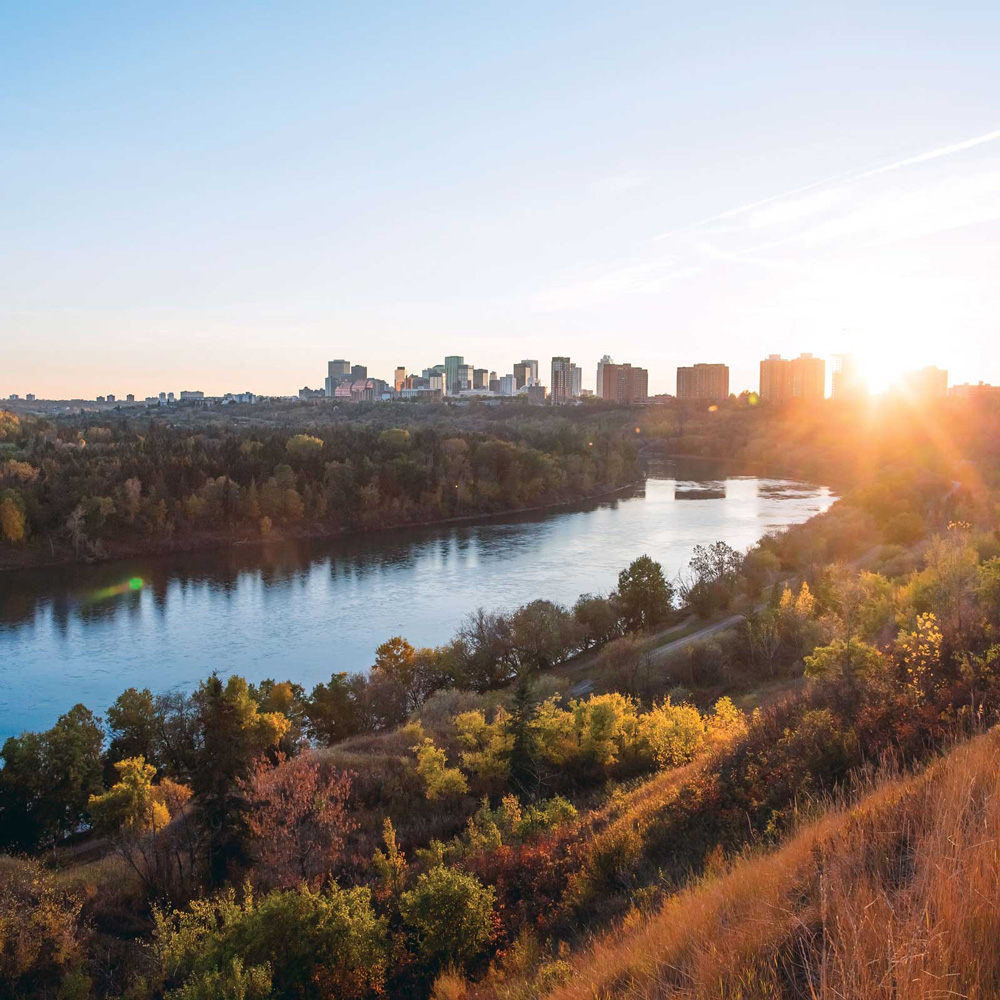 |
What do you like about Edmonton: I really like that Edmonton is a big city, with all of the amenities that you would expect in a city of it’s size, while also being quite accessible. You can reach almost anything within the city with at most a 25-30 minute drive. The river valley is a real highlight with lots of beautiful parks, picnic, and recreation areas that span across it. What are the highlights of the program for you: This program really emphasizes your needs as a learner over anything else. Your time in the clinic is balanced by plenty of time for reading around cases, preparing for the next day’s clinic, research, or any other academic interests you might have. The staff are also all great. Extremely supportive, willing to teach, and importantly, quite readily willing to give feedback on your clinical encounters. While it is still early in my training, I feel confident that this is a program that will facilitate whatever type of oncologist I want to be. What is one piece of advice that you want to share with applicants about the interview process: Perhaps unlike previous interviews, this one is primarily aimed at just getting to know you and seeing if you are a fit for the program. So don’t be too intimidated, just be yourself and let your passion and interest in Oncology shine through. Ali Fawaz 2021-2023 |
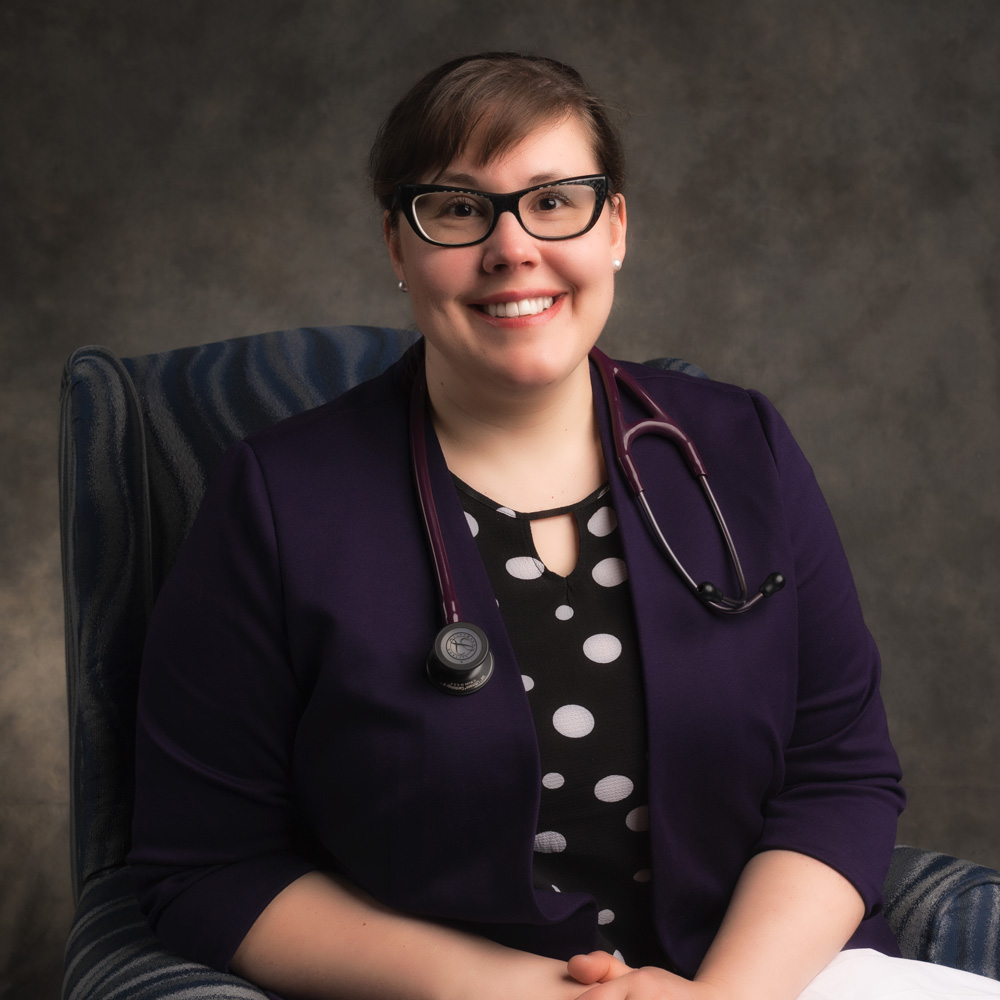 |
What do you like about Edmonton: For me Edmonton is home. I particularly enjoy the many scenic trails and parks in any season. What are the highlights of the program for you: The University of Alberta Medical Oncology Residency Training Program prioritizes resident learning and wellness to establish a solid platform for subsequent independent practice or fellowship. In addition to formal academic half day lectures, tumour group rounds/meetings and regular clinical teaching, staff enjoy and are eager to provide further informal teaching sessions and mentorship. Early involvement in resident longitudinal clinics facilitates practical management of the multidisciplinary nature of oncologic continuity of care including disease and treatment related complications, psychological aspects and socioeconomic challenges. Excellent opportunities for research projects with support and guidance from faculty. What is one piece of advice that you want to share with applicants about the interview process: Relax and enjoy! You have made it this far for a reason. Bo Zorniak 2017-2019 |
 |
What do you like about Edmonton: Edmonton is where I grew up. It is diverse, fun and vibrant. The river valley is beautiful, and offers ample opportunity for any activity from Fall to Spring. In the winter, there are plenty of outdoor events for all ages, and we aren’t too far from mountains and lakes in any given direction. Alberta is an incredibly beautiful province. What are the highlights of the program for you: I appreciate the focus on resident education and wellness. In addition to this, the program encourages a multidisciplinary approach to treating our patients, which allows for a greater breadth of knowledge and awareness of resources when it comes to treating our patients. We work closely with pharmacists, nurses, hospitalists, psychiatry, palliative care, radiation oncologists and surgeons. The staff are friendly, approachable and a pleasure to work with. The focus of your time spent in the program is tailored to your goals for the future, and you are well supported in your endeavours. If you want to do research, there are plenty of opportunities to do so. If you are gearing toward a community practice, this program will set you up for success. Both local and out-of-country fellowships can be explored. The University of Alberta’s Medical Oncology program is certainly one I am proud to be a part of. What is one piece of advice that you want to share with applicants about the interview process: Be yourself! It is the best thing you can do. MSM is not as intense as the first round, and it really is about getting to know you, a potential future colleague, as a person. Carissa Beaulieu 2021-2023 |
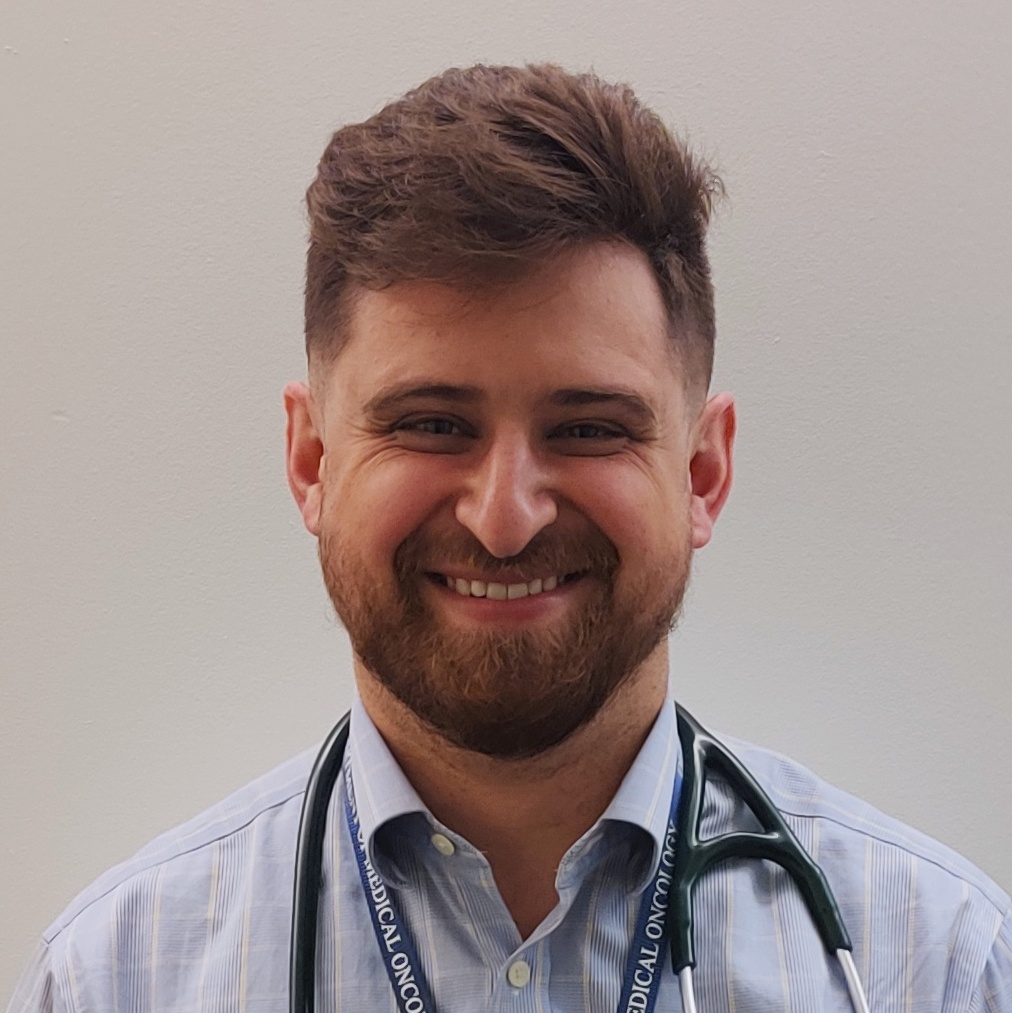 |
What do you like about Edmonton: I’m quite new to Edmonton, having just arrived from Ontario. Nonetheless, the festival scene is fantastic, the art scene is developed, and it’s affordable! You can legitimately still buy a detached house in Edmonton and the surrounding area on a resident salary. What are the highlights of the program for you: The culture and supports in this program are absolutely fantastic. Everyone legitimately cares about you, your learning, and your broader career. You are treated like a human and a member of the team. Coming from an Ontario perspective, Alberta as a whole takes technology, communication, and patient supports so much more seriously than I’m used to. Do not underestimate how much less stressful your life as a resident is when you can reliably get allied health, tech, and admin support. Informal teaching throughout clinic is the norm, and staff are happy to take extra time to go through things in detail at request. EPAs are regularly offered to you, making CBME far less stressful than you’re likely used to in IM. Last, but not least, we have some of the most reasonable call that I can imagine. It boils down to 10 weeks across both years of essentially a light home call. You sign up for whatever weeks are most convenient for you and align with a staff/mentor that you want to work with. This is not consistent across Med Onc programs in Canada; make sure you know what you’re signing up for. What is one piece of advice that you want to share with applicants about the interview process: This round of CARMS is far less stressful than for PGY1. Just come, be yourself, and ask questions to make sure you’ll be happy and a good fit here. Graydon Lucas 2021-2023 |
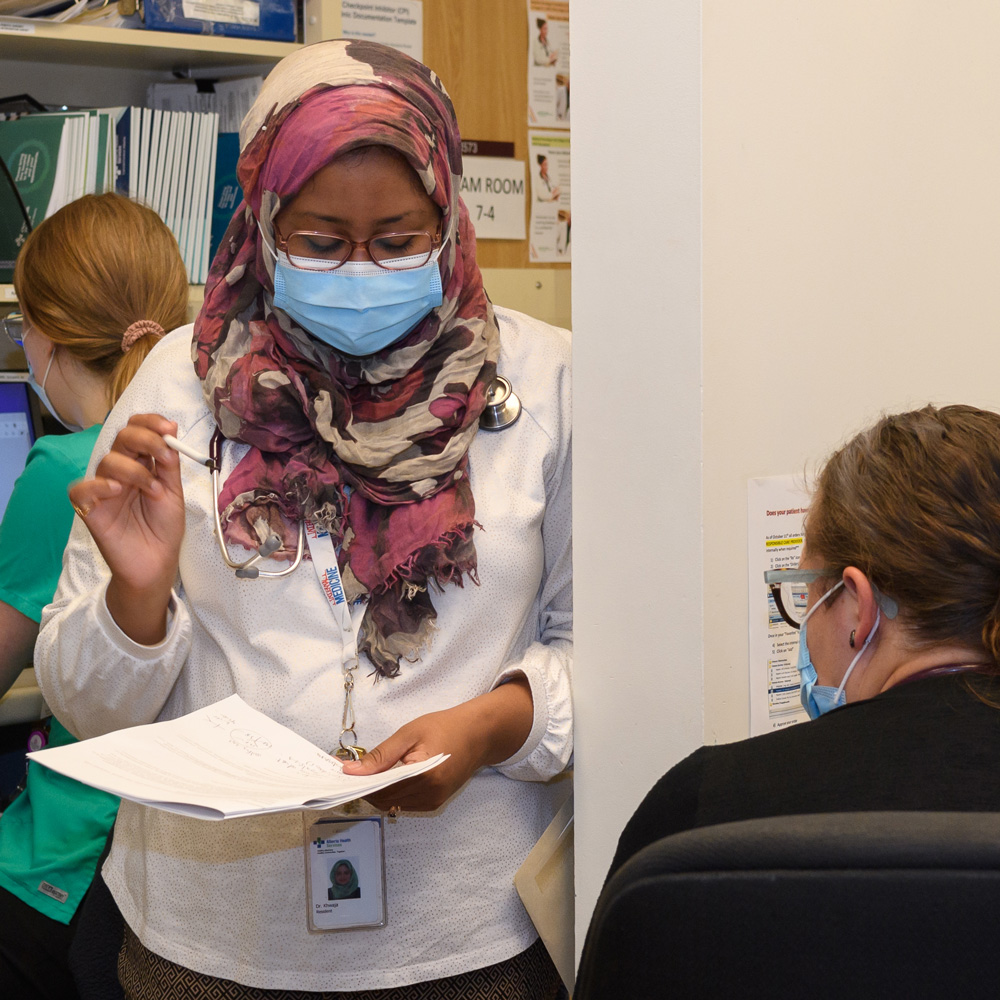 |
What do you like about Edmonton: Edmonton is a lovely city with a lot of outdoor activities available throughout summer and winter. The River Valley is my favorite and very accessible through all parts of the city. It is easy to be able to connect with nature with the beautiful views of the river valley. Edmonton is also 3-4 hours drive away from the majestic Jasper National Park- a very easy to-do weekend trip. What are the highlights of the program for you: My favorite part of our program are the colleagues in our program. They are truly the most supportive, humble and approachable teachers. There is an open door policy to ask for help for medical knowledge as well to discuss about career planning and work-life balance. This creates a very supportive environment to learn and develop as a trainee while knowing that others are aware of your challenges as a resident. I also found the introduction of longitudinal clinic midway in PGY-4 year an excellent time to learn to organize and manage one’s own clinic with full staff support in the background. There are also plenty of opportunities to practice teaching and presentation skills through resident rounds in the form of journal club and also academic teachings. Whether or not you have strong research background, if you have interest in pursuing a research project, there are a number of projects available to get involved in. What is one piece of advice that you want to share with applicants about the interview process: Remember to reflect on how accomplished you already are for coming this far and be yourself in the interview. The entire CARMS process can be a stressful time so remember to take time to care for yourself in between interviews! Raida Khwaja 2020-2022 |